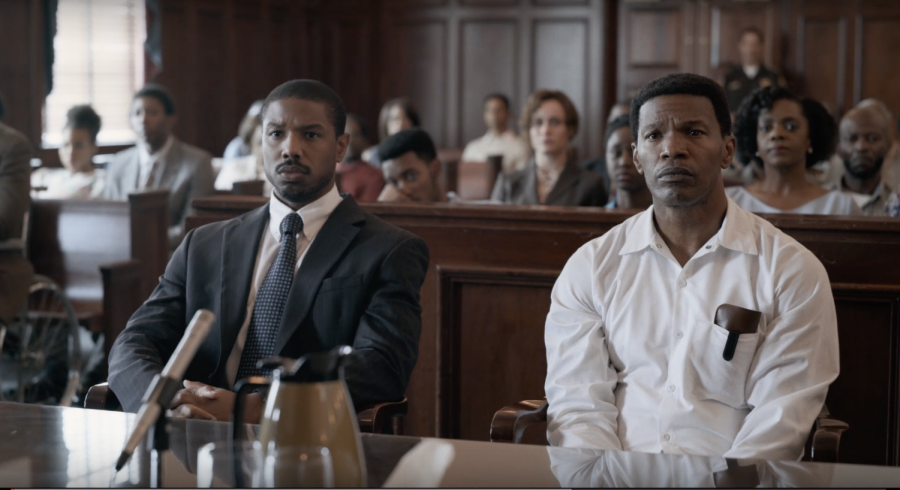Just Mercy addresses prevalent issues
Photo Warner Bros
Courtroom scene from Just Mercy
The film Just Mercy, based on the New York Times best seller by Bryan Stevenson, hit theaters on Jan. 10 and stars Michael B. Jordan, Jamie Foxx and Brie Larson. It follows the journey of Stevenson (Jordan) as he realizes what he wants to do with his Harvard Law degree: help release prisoners on death row.
After meeting inmate Walter McMillian (Foxx), Stevenson is inspired to create his own organization to free innocent prisoners and reduce death row sentences. He moves to Montgomery, AL and joins forces with local, Eva Ansley (Larson) to start the program. He chooses to represent McMillian in court, defending his innocence in the murder of Ronda Morrison, an 18-year-old white girl killed in 1986. Through his investigation of McMillian’s first trial, Stevenson makes it clear that McMillian is the victim, not the perpetrator.
One of the most fascinating, yet disappointing, aspects of Stevenson’s story is that he himself is mistreated due to the color of his skin. The most chilling scene of the movie is when he visits prison as McMillian’s attorney. As a lawyer, he should not be subjected to a strip search, but the white guard forces him into one. Stevenson knows he must concede if he wants to see his client. This scene is almost completely devoid of dialogue; the emotional impact is all communicated through Jordan’s facial expressions. He conveys shame and pain through his eyes exclusively.
After experiencing this, he is emotionally tied to what men of color go through on death row, and he can never walk away from it.
The movie’s greatest strength, besides the exposure it gained for Stevenson and the corruption of death row, is its emotional impact. Even in a small theater, the audience’s response was remarkable. People laughed, cried, groaned and cheered.
What stood out to me was the response one African American woman had to a statistic shown at the end of the film. The screen read, “For every nine people who have been executed in the U.S., one person on death row has been exonerated and released, a shocking rate of error.” From down the aisle, I heard her scoff and say, “Shocking? Not for us.”
It’s easy to watch a movie and be relieved that the conflict was resolved. But, Just Mercy makes viewers realize that real life isn’t so simple. When the screen goes dark, life goes on. Justice for all has not been achieved. Not yet.

